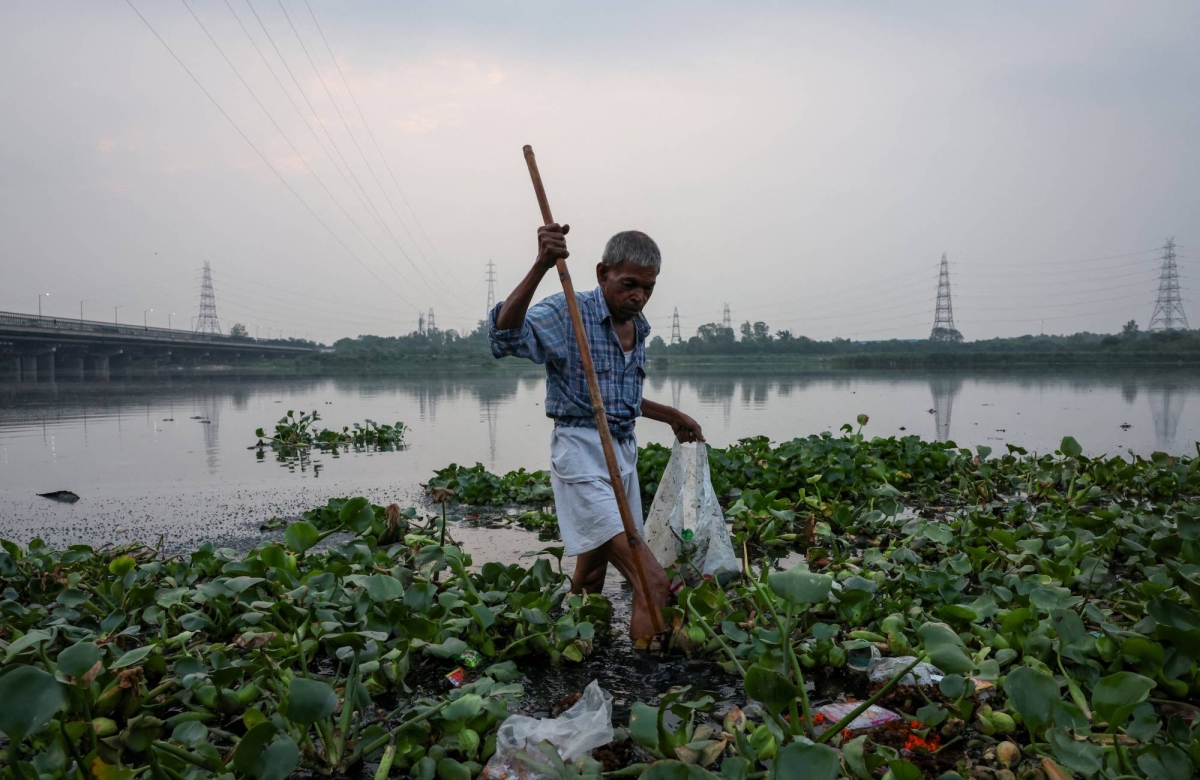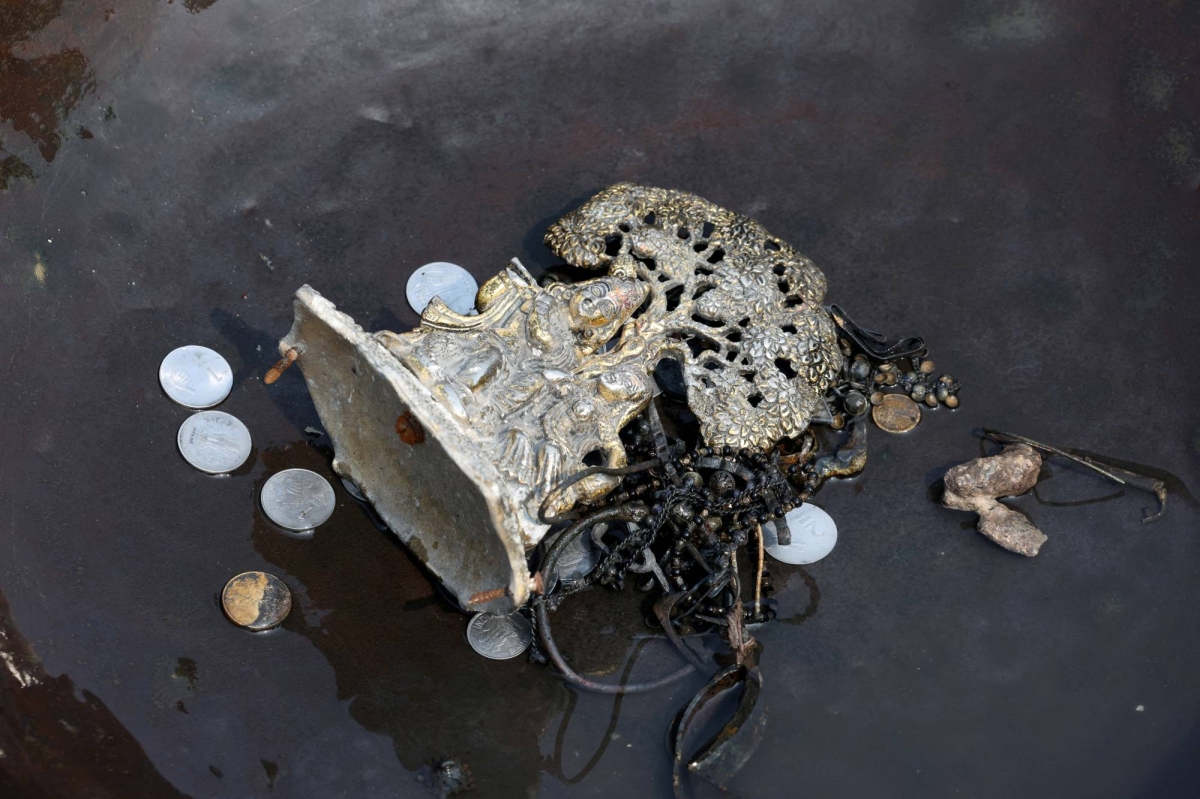He is one of hundreds of gotakhor (divers) who scour the river for coins, jewelry, bottles, and scrap metal, selling their finds in Delhi's bustling markets.
"I earn about 5,000 rupees (58 USD) a month from this," says 67-year-old Ramu Gupta. During the day, Gupta works as a cleaner in his slum. He supplements his income by diving in the river to save for his two grandchildren's future.
Rivers hold sacred significance in the Hindu faith. Pilgrims often toss offerings like coins, coconuts, and flowers into the water to thank the "river goddess," the provider of drinking water and irrigation.
 |
Mr. Gupta, 67, searches for coins and valuables along the Yamuna River, 26/6. Photo: Reuters |
Mr. Gupta, 67, searches for coins and valuables along the Yamuna River, 26/6. Photo: Reuters
Indians revere the Yamuna as one of the country's holiest rivers. They cremate their dead on its banks, scattering ashes and the deceased's most prized possessions, like money and jewelry, into the water.
However, the stretch of the Yamuna flowing through Delhi is also one of India's most polluted, filled with sewage, chemicals, industrial waste, animal carcasses, and human ashes. Mr. Gupta and hundreds of other gotakhor risk their health daily, diving into this polluted stretch in search of treasure.
Mr. Gupta has been scavenging the river morning and evening for 35 years, seven days a week.
Nearby is 29-year-old Arvind Kumar, a full-time gotakhor since he was 17. "There's no fixed income from this work," says Kumar, who earns an average of 7 USD a day, below India's minimum wage.
 |
Coins and valuable items collected from the Yamuna River, New Delhi, 26/6. Photo: Reuters |
Coins and valuable items collected from the Yamuna River, New Delhi, 26/6. Photo: Reuters
The gotakhor mainly find coins, bottles, and plastic. Occasionally, they recover gold pieces, rings, necklaces, and other relics of the deceased.
Sometimes, they find bodies in the river and report them to the police for retrieval. If they see someone drowning, they'll jump in to save them. "This makes us even happier than the person we saved," Gupta shares.
A Hindu devotee, he says he isn't afraid of the river, believing he's protected by the Goddess Durga.
"So why fear? If the Goddess wills it, I will die. If she wants me to live, she will save me," he says.
Duc Trung (Reuters, AFP)












